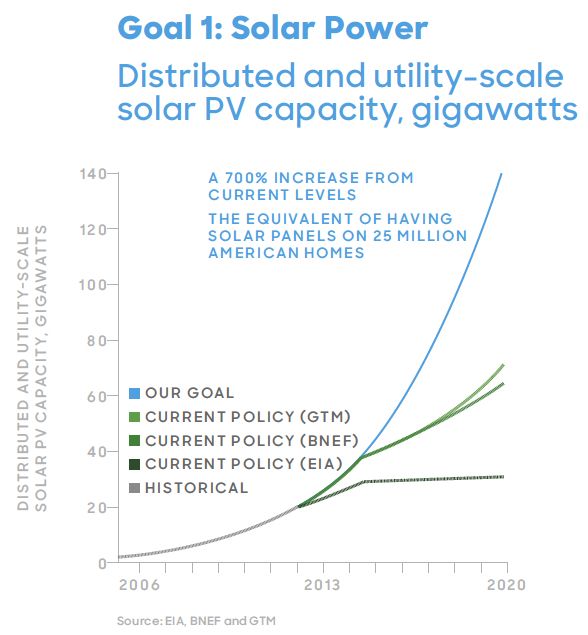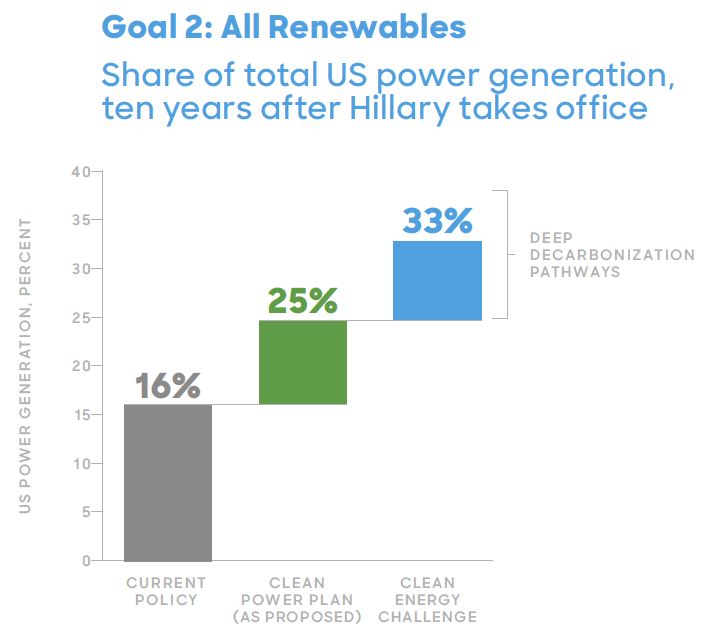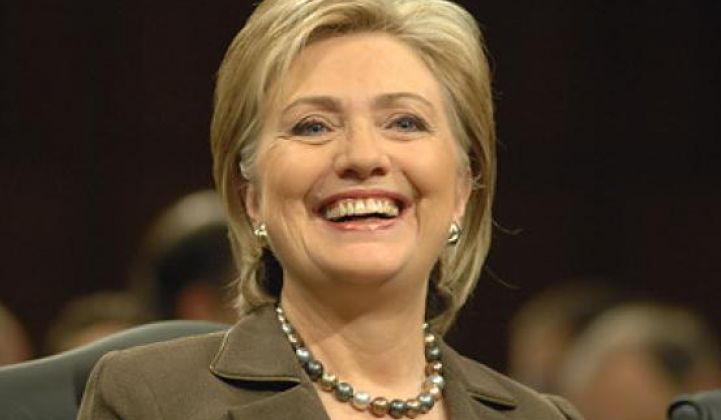Democratic presidential candidate Hillary Clinton just issued a renewable energy vision fact sheet that sets aggressive goals for solar and renewables as it acknowledges the challenge of climate change.
The document establishes Clinton as one of the few renewable energy advocates (and climate change conspiracists) in the 2016 presidential race.
Here are 5 takeaways.
1. Clinton announced a goal of boosting U.S. installed solar capacity from its current 20 gigawatts to 140 gigawatts by the end of 2020. The U.S. installed 6.2 gigawatts of solar PV in 2014, up 30 percent over 2013, according to GTM Research (which had its PV forecast cited by the Clinton team). It's an ambitious goal that will require a new set of policy drivers and incentives.

2. Clinton also announced a goal of generating renewable energy to "power every home in America" by 2026 from a combination of wind, solar, hydro, geothermal and other renewables.

3. Clinton will make it "a top priority to fight efforts to roll back the Clean Power Plan," calling the CPP "a crucial tool in our national strategy to reduce carbon pollution, level the playing field for and increase the deployment of renewable energy."
4. Clinton vowed to "fight to extend federal clean energy incentives and make them more cost-effective both for taxpayers and clean energy producers," as well as making investments in transmission, opening up solar power to low-income households, expanding renewable energy on public lands and federal buildings and increasing public investment in clean energy R&D.
5. The Clinton team looks to "reduce the amount of oil consumed in the United States and around the world, guard against energy supply disruptions, and make our communities, our infrastructure, and our financial markets more resilient to climate-related risks," while making sure "that fossil fuel production taking place today is safe and responsible."
Clinton's stance on the Keystone XL pipeline remains unclear. The candidate expects to lay out a more extensive energy and climate agenda over the coming months.
Clinton's fellow 2016 Democratic presidential candidate and Vermont Senator Bernie Sanders opposes the Keystone XL pipeline and has urged the Senate to go on record to acknowledge climate change's existence and extent. Sanders recently introduced legislation establishing a solar program for low-income families.
Republican presidential candidate Jeb Bush supports ending all subsidies for renewables, as well as oil and gas. (Oil and gas incentives tend to be much more embedded and difficult to dislodge.) Bush has called himself a "skeptic" on climate change and is not a fan of the Pope's recent encyclical on climate issues. Bush has also referred to the building of Keystone XL as a “no-brainer.”
Scott Walker supports the Keystone XL pipeline and fracking, and has also come out strongly against the Clean Power Plan.
Energy doesn't register as a top issue on the Marco Rubio issue list. Rubio gave support to hybrids and solar power earlier in his career, but has also said, "I do not believe that human activity is causing these dramatic changes to our climate the way these scientists are portraying it," on ABC's This Week in 2014.
Donald Trump is on record as being a supporter of the Keystone XL pipeline and fracking. The current leader of the Republican primary race told Jake Tapper in July, “I’m not a huge believer in the global warming phenomenon.”



